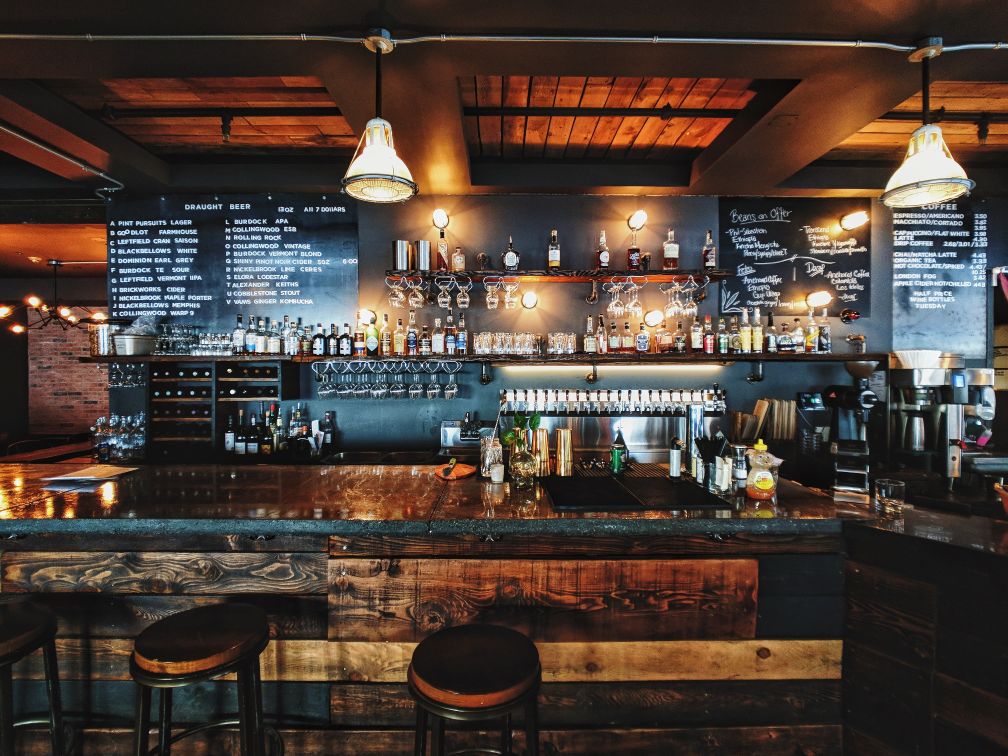How much does it cost to start a bar? It seems straightforward: get a liquor license, find a space to rent, hire some staff, buy some inventory, and let the libations flow. However, the items listed here are a bit more complex than they may seem. Plus, there is more to running a successful bar than just having all the correct pieces in place—they have to work together to be profitable.
In the right circumstances, opening a local pub or bar can be a great investment. If you’ve been interested in pursuing a new business endeavour by opening a bar, read on. In this post we’ll go over how much money is needed to open a bar, so that you can start your business well-equipped with the information you need to be successful.
How Much Money is Needed to Open a Bar?
How much does it cost to open a bar? The consensus is that the average cost to open a bar is between $25,000 and $50,000. When answering the question how much do you need to open a bar also include the allocation of money for staff and inventory.
Before starting out, we recommend downloading one of the many available bar startup costs spreadsheets that can be found online. These can be a huge help in tracking bar startup costs.
One way of answering “how much does a bar cost to open” is to buy a bar that is already operating. Setting up your business in an existing bar may be the most economical option, depending on your situation. While this avenue can cost as little as $25,000, you’ll probably need to invest in renovation costs so that the interior matches your branding.
One time costs
- Equipment: Under this category are furnishings (seats, tables, etc.), a POS/labor/inventory system, kitchen equipment, and glassware. It’s always a good idea to check out the local restaurant supply stores to shop for bargain gear.
- Initial liquor inventory: Opening food and liquor inventory will be a fixed opening day cost, but continuing stock costs will be a variable cost, based on your daily traffic. Make sure that your selection matches your brand and image.
- Operating reserve: These are operating costs that will cover you for six months. They include labor, inventory, and a cushion for unexpected cash flow issues. Saving between $75,000 and $100,000 dollars should give you enough of a buffer against unforeseen circumstances.
Recurring costs
- Payroll: An important cost for any business. A bar-specific POS that has a scheduling system that can talk to a payroll provider and handle tips is a must.
- Licenses and permits: These essential costs vary depending on locale, and are in the fixed costs category. You will need a business license, a liquor license appropriate for what you are serving, an entertainment license, and a license for serving food. These costs can vary between $3000 and $6000 dollars annually.
- Insurance: Another important expense, liability and other insurance coverage will run between $2000 to $6000 dollars annually, depending on the size of your bar.
- Inventory: In addition to liquor, inventory includes everything you need to serve customers and run the business. Inventory does not include hard goods like chairs, glassware, cutlery, and so on.
- Rent and utilities: These are ongoing monthly costs. Taking the time to implement energy reduction measures (maintaining equipment, lighting, and heating on timers, etc.) can save you in the long run.
- Taxes and fees: These include costs such as sales tax, worker’s comp, federal, state and city taxes.
Additional startup costs
Other items to note when discussing how much to open a bar include costs like accounting and legal services, marketing and advertising, and other miscellaneous costs. Don’t skimp on professional services for these expenses! Professional insight will save you money in the long run.
Bar Startup Costs: Common Spending Mistakes
How much does it cost to open a bar? When discussing costs, it’s important to note how to save as well. Here are some tips that can help you minimize your bar startup costs:
Keep the liquor simple
Stock the basics of popular beers, wine, and other common liquor types. Build a menu you know you can afford; no need to stock rare and expensive liquors that people won’t commonly order.
Keep the décor basic
For a local neighborhood beer or sports bar, simple wood furnishings are a decor staple. You may have a vision for your perfect aesthetic, but what’s more important is that your customers are comfortable and the cost of décor is sustainable.
Be smart about renovations
Make your bar comfortable for your patrons, but be sure to keep your facilities, equipment, and space up to code as well. You’ll want to ensure renovations set up your bar to be safe and welcoming to customers and staff both now and in the future.
Music, music, music
Music is critical in deciding the atmosphere and branding of your space. If you can, setting up a small stage and hookups for instruments can enable you to provide live entertainment. But, for the sake of cost, keep it small and intimate.
Check your costs again, and get help
Once you have your business plan and your budget in place, all that’s left to do is fund the project and get it started. If you need help securing the funds needed to get your business off the ground, don’t worry, there are plenty of funding options available to small business owners. L3 Funding’s business cash advance process is quick and simple, letting you focus on the task at hand: your bar!
L3 Funding has Your Answers
L3 funding has been assisting small business people for years, helping them find innovative merchant funding solutions and solve their business problems as they go. If you have questions about how much money is needed to open a bar, we’d love to hear from you. Reach out to us to learn more!
